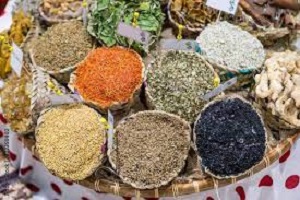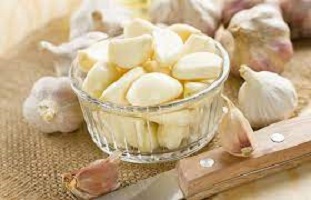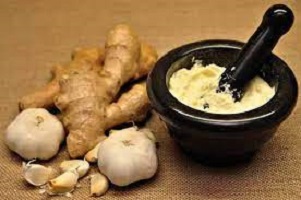Herbs and Spices English Names | Uses
The Herbs and Spices English Names | Uses. Please Watch >>>>

- List of Spices and Herbs in English
- English Names of Your Favourite Local Spices
- Indigenous Names of Herbs and Spices in English
- Uses of Herbs and Spices
- Herb and Spice
- Herbs, Spices, and Condiments
- Types and Definition
What are Herbs and Spices?
Herbs are the leafy green or flowering parts of a plant that are used for food, flavoring, medicine, or fragrances due to their savory or aromatic properties.
A spice is a seed, fruit, root, bark, or other plant material that is primarily used to flavor, color, or preserve food.
A herb is any plant with flowers, leaves, or seeds that can be used to flavor food, used in medicine, or added to perfumes.
Herbs are typically ground into a powder form in the kitchen so that they can be easily sprinkled on or into food. The spices enhance the flavor.
Spices, like herbs, are used in powder form during cooking. Spices, on the other hand, are not herbs.
When food is described as “spicy,” your mouth becomes hot and you are encouraged to drink water with your meal. Spices are most commonly found in curries, but they can be added to any recipe to add flavor or heat.
An Overview of the Differences between Herbs and Spices
An herb is the plant’s green, leafy part. Basil, rosemary, sage, thyme, parsley, and oregano are some examples.
Spice can be derived from a tree or plant’s root, stem, seed, fruit, flower, or bark. Cinnamon, ginger, black pepper, star anise, and turmeric are a few examples.
Health Benefits of Herbs and Spices
There is now ample evidence that spices and herbs have antioxidant, anti-inflammatory, antitumorigenic, anticarcinogenic, glucose- and cholesterol-lowering properties as well as properties that affect cognition and mood
Herbs and Spices List ~ Top 50 spice Types
- Cilantro/coriander
- Artichoke
- Rosemary
- Bay leaves
- Mint leaves
- Basil
- Clove
- Olive
- Shallot
- Turmeric
- Garlic
- Ginger
- Onion
- Spring onions/green onions
- Lemongrass
- Chives
- Green chili
Herbs and Spice Names ~ English Names of Your Favourite Local Spices
- Cloves (English)
– Dadoa Amba (Twi)
– P3pr3 (Twi)
– Mbr3go Amba (Fante) - Anise seed (English)
– nkitinkiti (Twi)
– Osu kon (Ga) - Basil (English)
– Akuko besa (Twi) - Grains of Selim /Negro Pepper (English)
– Hwentia (Twi)
– Soh (Ga) - Black Peppercorns / West African Black Pepper/Tailed Pepper (English)
– Esoro Wisa (Twi)
– Wire Din (Ga) - Chilli/ African Bird pepper
– Akweley Waabi (Ga)
– Misewa (Twi) - Grains of Paradise /Alligator Pepper / Guinea Pepper (English)
– Efom Wisa (Twi)
– Wire Tsuru (Ga) - Calabash Nutmeg / African Nutmeg (English)
– Wedie Aba (Twi)
– Awerewa (Twi) - Turkey Berry (English)
– Abeduru (Twi)
– Kwahu Nsosua (Twi) - African Locust Bean
– Dawadawa (Twi)
English and Botanical Names of the following List of Indigenous Spices
- Local Names: Mpuru uziza (Igbo), (Ashanti pepper) (ghana), Benin pepper, false cubeb
English Name: West African pepper
Botanical Name: Piper guineese
- Local Name: Kanafuru (Hausa)
English Name: Cloves
Botanical Name: Syzygium aromaticum
- Local Names: “Ehu”/ “Ehuru”(Igbo) , “Ariwo”(Yoruba) , “Iwo” “Erhe (itshekiri)”)
English Name: Calabash Nutmeg
Botanical Name: Monodora myristica
- Local Name: “Umilo” itshekiri)
English Name: Nutmeg
Botanical Name: Myristica fragrans
- Local Name:
English Name: Ginger
Botanical Name: Zingiber officinale
- Local Name:
English Name: Garlic
Botanical Name: Allium sativum
- Local Name: Gbafilo
English Name:
Botanical Name: Uapaca guineesis
- Local Name: Ataiko
English Name:
Botanical Name:
- Local Name: Irugege
English Name:
Botanical Name:
- Local Name: Oburunbebe Stick
English Name: Liquorice ( British English ) or licorice ( American English )
Botanical Name: Glycyrrhiza glabra
- Local Name:
English Name: Tumeric
Botanical Name:
- Local Name:
English Name: Alligator pepper
Botanical Name:
List of 20+ Spices Name
| Asafoetida | Allspice |
| Anise/Aniseed | Bay Leaf |
| Basil | Black Cumin |
| Black Mustard | The black Pepper |
| Caraway | Cardamon |
| Cumin | Coriander |
| Chives | Cayenne Pepper |
| Chicory | Clove |
| Dill | Fennel |
| Fenugreek | Lemon Grass |
| Mace | Nutmeg |
| Oregano | Pepper |
| Peppermint | Paprika |
| Parsley | Poppyseed |
| Rosemary | Saffron |
| Sage | Savory |
| Sesame seed | Star Anise |
| Thyme | Turmeric |
| Vanilla | White Mustard |
About Some Common Spices ~ an Overview
| Name of the Spices | Brief Explanation |
| Asafoetida | Asafoetida, also known as Hing, is a dried latex that is obtained from the tap root/rhizome of different species of Ferula. This spice is mainly added to dishes to enhance the smell. |
| Bay Leaf | Bay Leaf, also commonly known as Tej Patta, is used in almost all Indian dishes. It is either added in whole dried form or in grounded form. Bay Leaves are known for their aromatic quality. |
| Clove | Clove is the most common spice that is added to foods. It is the aromatic flowering bud part of the plant. It is used not only for its aroma but also for its rich flavor. |
| Fennel | Fennel is a flavourful culinary herb. The plants are generally green and white, with feathery leaves and yellow flowers. |
| Paprika | Paprika is a red spice made from red peppers. It is either added to the food in a grounded form or as dried red peppers. It is mainly added to increase the spiciness of the food. |
FAQs
List of Nigerian spices ~ 5 Nigerian Spices to Enhance Your Cooking
- Alligator Pepper. This aromatic, pungent and peppery spice gets its name from the alligator-like skin that surrounds the seeds’ pod.
- Cameroon Pepper.
- Ehuru (Calabash Nutmeg)
- Suya Spice
- Uda (Grains of Selim)
Igbo Local Spices
Pepper, e.g cayenne, Uda – also known as negro pepper, black pepper, bell pepper.
Roots (mostly ground) and shrubs include onion, ginger, turmeric, and garlic.
Examples of leaves are- scent leaf and bitter leaf. Cloves are Kanafuru – also known as cloves, seeds include peanuts, and Uziza seeds –known also as Pieper Guinness.
Spices list ~ list of herbs and spices
- Allspice (Pimenta dioica)
- Angelica (Angelica archangelica)
- Anise (Pimpinella anisum)
- Bergamot (Monarda species)
- Black cumin (Nigella sativa)
- Asafoetida (Ferula assa-foetida)
- Bay leaf (Laurus nobilis)
- Basil (Ocimum basilicum)
Top 15 spices every kitchen needs ~ 15 “Must Have” Spices for the Frugal Kitchen
- Paprika
- Sea Salt.
- Garlic Powder
- Onion Powder
- Ground Cinnamon *baking*
- Nutmeg (whole or ground) *baking*
- Ground Cloves *baking*
- Ginger *baking*
- Apple Pie Spice (This is a combo of cinnamon, allspice, nutmeg, and ginger. If you have all of those, you can mix them to make your own Apple Pie Spice, decreasing the size of your spice rack by one.)
- Basil
- Bay Leaves.
- Cayenne
- Chili Powder.
- Cinnamon–Ground and Stick.
- Cloves
List of common spices ~ list of herbs and spices
- Allspice (Pimenta dioica)
- Asafoetida (Ferula assa-foetida)
- Bay leaf (Laurus nobilis)
- Basil (Ocimum basilicum)
- Angelica (Angelica archangelica)
- Anise (Pimpinella anisum)
- Bergamot (Monarda species)
- Black cumin (Nigella sativa)
Top 5 spices to have in your kitchen ~ Top 10 spices you should have in your kitchen
- The black Pepper. As the counterpoint to the always-prevalent salt, black pepper is a flavorful spice that tastes good on most savory dishes in small doses.
- Garlic Powder.
- Thyme
- Cinnamon
- Oregano
- Rosemary
List of Common Spices and Their Uses
- Allspice
Allspice tastes similar to cinnamon, cloves, nutmeg, and pepper. Allspice, whether ground or whole, flavors both sweet and savory dishes and is a key ingredient in spiced cider and Jamaican jerk chicken.
- Basil
Basil is one of the most commonly used herbs in the kitchen, with a sweet and earthy aroma.
The herb’s flavorful appearance in pesto complements a variety of meat dishes, vegetables, and soups.
- Cardamom
Cardamom is a spice that is described as intense and pungent, with light lemon and mint notes. To preserve the natural essential oils, purchase whole cardamom pods rather than ground.
- Cayenne Pepper
Cayenne pepper, derived from hot chili pepper, adds heat to a variety of dishes. Cayenne pepper can be used in a variety of recipes, from honey sesame fish tacos to Cajun pretzels.
- Cilantro
You may either love it or despise it, as new research indicates that the genes you were born with can influence the flavor you perceive from cilantro.
While some attribute the flavor to the soup, those who enjoy it describe it as mild parsley with citrus zest.
The delicate leaves are best eaten raw or at the end of cooking and go well with Mexican dishes, fish, soups, and salads.


